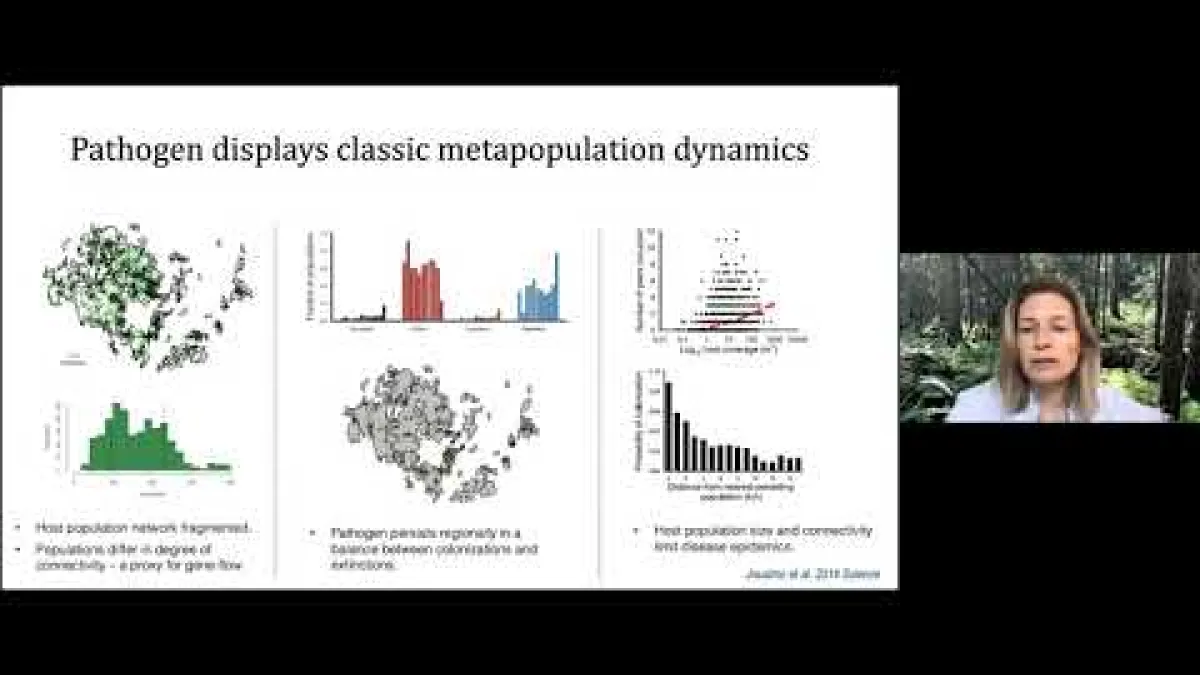Ecology and Evolution Discussions Down Under: Evolutionary Interactions
Invited Panel: Ary Hoffmann, Karyn Johnson, Ben Schwessinger
Speakers
Event series
Content navigation
Description

Invited Panel: Ary Hoffmann, Karyn Johnson, Ben Schwessinger
---------------------------------------------------------------------------
Uncovering the determinants of pathogen diversity in nature
Anna-Liisa Laine (University of Zurich)
Pathogens are prevalent across all ecosystems and exert negative effects on their hosts. Hence, there is a pressing need to understand risks of infection and how these evolve. Traditionally, host-pathogen interactions have been largely viewed within the ‘one host-one parasite’ framework although in reality the same host may be attacked by a myriad of pathogenic microbes. However, remarkably little is known about the factors that determine which pathogens co-occur within the same host individual and how they interact. Theoretically the resulting interaction has been proposed to range along a continuum where at the one end we find superinfection with a single strain gaining dominance of the entire host, and at the other end of the continuum we find coinfection. For a long time, the empirical study of disease dynamics under coinfection lagged behind theoretical predictions due to the methodological challenges of directly observing coinfection dynamics. In my talk I will present case studies of within host pathogen strain diversity and species diversity, and what we’ve learned about the determinants of this diversity.
---------------------------------------------------------------------------
Do eco-evolutionary feedbacks matter in host-pathogen interactions?
Ben Ashby (University of Bath)
Pathogens play a major role in host ecology and evolution, and vice versa. Understanding fundamental ecological and evolutionary processes – and the interplay between them (“eco-evolutionary feedbacks”) – is crucial not only for managing infectious diseases, but also for explaining a wide range of biological phenomena, including spatial and temporal patterns of diversity such as "Red Queen Dynamics". Eco-evolutionary feedbacks are often difficult to intuit, but mathematical modelling can offer key insights. In this talk, I will discuss how we can approach modelling these effects and how they influence the evolution of traits such as resistance, infectivity, and virulence.
Location
Please click the link below to join the webinar:
https://anu.zoom.us/j/87309503992?pwd=T1ZTckxjbFN6Z3EyV1VnSDhTS3VCZz09
Passcode: 803627
Canberra time: please check your local time & date if you are watching from elsewhere



